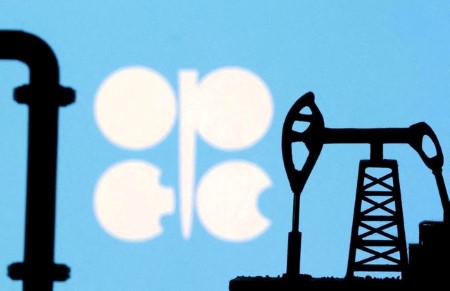




January Economic Update: Growth slows, prices rise
 DOWNLOAD
DOWNLOAD

Inflation Update: Up, up, and away?
 DOWNLOAD
DOWNLOAD

Quarterly Economic Growth Release: Growth takes on a slower pace
 DOWNLOAD
DOWNLOAD


Oil rises on Iran, Russia and Canada supply concerns

Oil prices rose in early Asia trade on Tuesday on concerns about supply, with Iran set to reject a US nuclear deal proposal that would be key to easing sanctions on the major oil producer, and with production in Canada hit by wildfires.
Brent crude futures gained 55 cents, or 0.85%, to USD 65.18 a barrel by 0000 GMT. US West Texas Intermediate crude was up 59 cents, or 0.94%, to USD 63.11 a barrel, after rising around 1% earlier in the session.
Both contracts gained nearly 3% in the previous session after OPEC+ agreed to keep output increases in July at 411,000 barrels per day, which was less than some in the market had feared and the same hike as in the previous two months.
Geopolitical tensions supported prices on Tuesday. Iran was poised to reject a US proposal to end a decades-old nuclear dispute, an Iranian diplomat said on Monday, saying it fails to address Tehran’s interests or soften Washington’s stance on uranium enrichment.
If nuclear talks between the US and Iran fail, it could mean continued sanctions on Iran, which would limit Iranian supply and be supportive of oil prices.
The ongoing conflict between Russia and Ukraine continued to stoke supply concerns and geopolitical risk premiums.
Adding to supply worries, a wildfire in the province of Alberta in Canada has prompted a temporary shutdown of some oil and gas production, which could reduce supply.
According to Reuters calculations, wildfires in Canada have affected more than 344,000 bpd of oil sands production, or about 7% of the country’s overall crude oil output.
The big jump in oil prices on Monday mostly reflected relief that the Organization of the Petroleum Exporting Countries and allies, including Russia, did not go ahead with a larger production hike than in the previous two months.
“With the worst fears not panning out, investors unwound their bearish positions they had built prior to the weekend’s meeting,” Daniel Hynes, senior commodity strategist at ANZ, said in a note.
(Reporting by Anjana Anil in Bengaluru; Editing by Sonali Paul)
This article originally appeared on reuters.com





 By Reuters
By Reuters